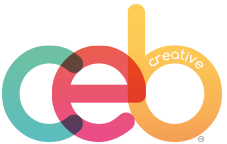
CEB Creative Closure Announcement
CEB Creative has ceased trading effective as of 4th April
Closing CEB Creative was not an easy decision, but I am focusing on my role at Toast Design and other business ventures.
I want to ensure that your needs continue to be met with the highest standards of service. For website support, I highly recommend the talented team at Toast Support. They are ready and able to provide the exceptional service you deserve. Please visit www.toastsupport.co.uk for more information.
For any hosting queries, the team at Searchworthy is at your service. You can reach out to them at hello@searchworthy.co.uk, where they are prepared to assist with any hosting needs or questions you may have.
If you're in need of website design or development, please consider visiting Toast Design. Their expertise in creating beautiful, functional websites is unparalleled, and I am confident they will continue to provide a high-quality service.
Thank you once again for your support. I wish you all the best in your future endeavours.
With heartfelt thanks,
Charlotte